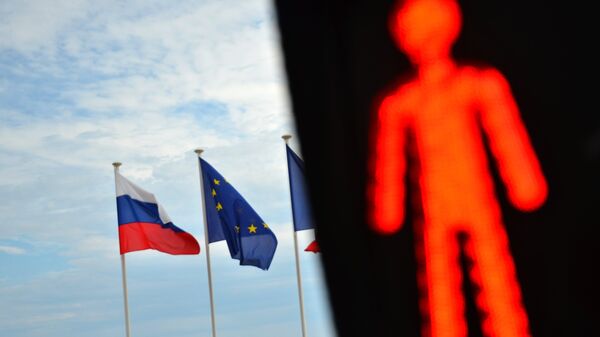MOSCOW (Sputnik) — In 2014, relations between Russia and the European Union soured amid the crisis in Ukraine. Brussels, Washington and their allies introduced several rounds of anti-Russian sanctions over Crimea's secession from Ukraine and for Russia's alleged meddling in the ongoing Ukrainian conflict, prompting Moscow to retaliate with sanctions of its own.
On Friday, the Council of the European Union prolonged the economic sanctions targeting specific sectors of Russia's economy until January 31, 2017.
"We agree that the EU sanctions should be renewed in July. We also call on the Government to consider extending travel bans to a larger portion of the Russian leadership," the defense committee said in its Russia: Implications for UK defence and security report on Tuesday.
The United Kingdom must also lead NATO toward stepping up its deterrence against the perceived threat of Russian militarization, the report added, noting that cooperation between Russia and the alliance must also take place where possible.
"Military cooperation could be possible with Russia whilst maintaining a robust response to transgressions of international law. Differences in some areas of global politics do not necessarily exclude cooperation in areas of shared interest," the committee said.

